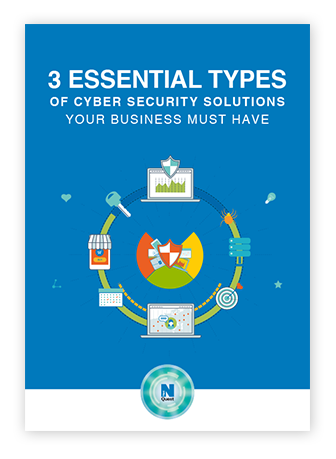A small company receives thousands of spam every year. A report by Symantec attests to this, revealing that a single employee gets 16 malicious spam emails every month or 192 spam emails a year. According to another report, 92.4% of spam contains malware attachments. The infamous WannaCry malware incident of 2017 spread by way of spam. It disrupted and crippled some 200,000 IT systems around the world, including those of large organizations.
The hacker technique of delivering malware via spam is just one of the ways malware is invading business systems and IT networks. These malicious applications cost millions of dollars per incident and cripple public and private services. It’s one of the biggest threats to business today.
What kinds of malware attack businesses?
These threats to a business’s IT infrastructure come in many forms and are constantly evolving, with newly developed malware and incidents reported frequently. Here are some of the most common forms known to disrupt businesses.
- Viruses are programs that replicate in three ways: file sharing, infected websites, and email attachments. When a virus gains entry into a computer, it will replicate itself and spread to other systems. For instance, it can hijack your email’s contact list or another application to send out infected files to your colleagues, friends, and clients. Because it seems to be coming from you, a trustworthy source, it has a higher chance of being opened and infecting your contacts. The damage from a virus includes minor glitches that can disrupt normal operations.
- Worms replicate themselves from computer to computer by exploiting software vulnerabilities. Once installed on a computer, it can spread and infect an entire network. The damage they do include modifying and deleting files, injecting other malware, depleting system resources, stealing data, and installing backdoors for hackers.
- Bots are computers under the control of a hacker. They can be used to launch attacks like ransomware, DDoS, keylogging, webcam access, spam, and phishing. A collection of bots under centralized control is called a botnet.
- Ransomware denies access to your own files by encrypting them. Perpetrators demand a fee (usually in Bitcoin) to release them, but there’s no guarantee they’ll do so.
- Trojans (Trojan horses) are malware disguised as legitimate files. Once downloaded, this malware becomes an entryway for hackers to delete and modify data, harvest your device as part of a botnet, spy on your computer, and gain access to your network.
- Adware is an annoying malware that serves pop-ups and display ads that have no relevance to the user. Such ads can be dangerous links to more malware. On top of that, adware often slows down host computers and can install spyware that monitors your online activity or collects your personal information.
- Spyware is software that installs itself on a computer to quietly harvest, track, or steal sensitive data and information. It normally comes with useful and seemingly harmless applications called freeware or shareware.
- Rootkits can install themselves in a machine or a network to execute files and make changes to its systems. Even expert monitoring tools have difficulty detecting them.
What are malware’s effects on businesses?
Using malware, cybercriminals primarily do two simple things. They gain access to a computer network and they damage it. By doing these two things, malware creates all kinds of trouble for businesses.
Download our free eBook!
Learn about affordable cyber security solutions that keep your business safe from malware and data breaches by reading our free ebook: 3 Essential types of cyber security solutions your business must have
- Business disruption
A malware infection can force critical business processes and operations come to a halt, with every hour of downtime costing hundreds of thousands of dollars. Business systems and software may go down or get hijacked, so clients can’t be served. Critical data needed for operations can be altered, deleted, stolen, or lost. Massive resources spent on research and development can go down the drain as records become irrecoverable.
Depending on the industry, malware-caused disruptions lead to particular disasters. For healthcare providers, malware attacks have proven to be near fatal, as patients are denied much-needed care. What would happen if your business didn’t have access to crucial data?
- Loss of customer trust
All companies to some extent store customer and client data on their systems. Because of regulations, legal, financial, and healthcare organizations, in particular, are obligated to protect the confidentiality and integrity of this information.
When customer information is stolen, it can be used for identity theft and other kinds of fraud. No return business will likely come from these customers ever again.
- Financial costs
Malware-affected businesses may have to pay damages for compromised employee and customer data. Other costs include legal fees to deal with disgruntled customers, forensic fees to investigate the incident, penalties for not following data security and privacy regulations, and cybersecurity costs to prevent future attacks.
- Loss of reputation and credibility
Your reputation will suffer when failure to safeguard customer information or business-critical applications is made known to the public. Your company may come off as one that’s not prepared to compete in a digital economy. Not only will existing customers depart, but potential investors and potential talent will stay away.
There are many solutions that detect and prevent malware attacks, each with its own advantages, limitations, and drawbacks. But there is no solution that will keep all the threats at bay. What your business needs is a security partner, an expert who will implement and employ several solutions for security risks and vulnerabilities of your IT infrastructure.
Netquest is a managed services provider (MSP) with expertise in a complete array of solutions, and it's our mission to provide cost-effective and comprehensive security. Find out more about keeping your business safe from malware. Call us today.
Like This Article?
Sign up below and once a month we'll send you a roundup of our most popular posts



